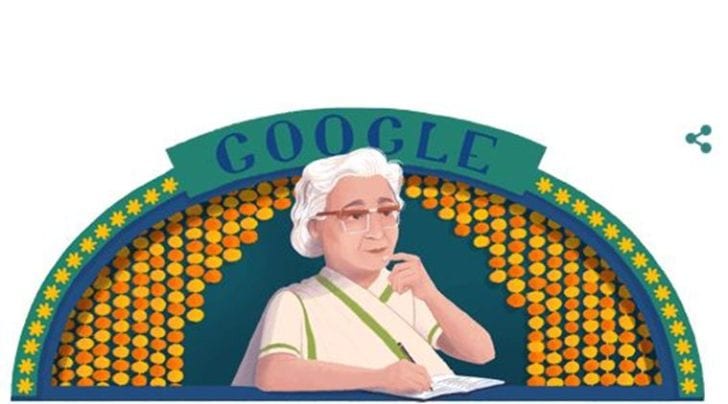Ismat Chughtai 103rd birth anniversary: Google doodle honours iconic writer
Ismat Chughtai: In adherence to the literary movement of the partition era, Chughtai was one of the most notable beacons of the Progressive Writer's Association- an umbrella organisation of left-leaning writers with Marxist undercurrents which included writers like Manto and Faiz Ahmad 'Faiz'.

Ismat Chughtai: As common with the progressive writers of partition era, Chughtai was often criticised for her graphic portrayals of relationships which were often deemed as ‘obscene’ and had to face court trials for alleged obscene literature.
Ismat Chughtai, one of the most iconic writers of the partition era, was honoured by Google on her 103rd birth anniversary with a doodle featuring her on its homepage. Chughtai, along with other progressive writers like Saadat Hassan Manto, is fondly remembered for her depiction of the underlying emotional subtleties of the human struggle against social-cultural establishments. Who was Ismat Chughtai?
Born on August 21, 1911 in Badayun (Uttar Pradesh), Chughtai was honoured with Padma Shri in 1976 for her contributions to literature. Part of the literary movement in the partition era, Chughtai was one of the most notable beacons of the Progressive Writer’s Association — an umbrella organisation of left-leaning writers with Marxist undercurrents which included writers like Manto and Faiz Ahmad ‘Faiz’.
One of Chughtai’s most popular short story, Lihaaf (The Quilt), is considered to be representative work of her literary oeuvre and depicts the sensitivities of female homosexuality in the face of a social landscape which is hostile to the idea of same-sex relationship. Deepa Mehta’s 1996 film, Fire, is said to be a cinematic adaptation of Lihaaf. The film features Shabana Azmi and Nandita Das in lead roles.
As common with progressive writers of the partition era, Chughtai was often criticised for her graphic portrayals of relationships which were often deemed as ‘obscene’ and had to stand trial. Also, her short stories like ‘Kafir’ and ‘Dheet’ were considered blasphemous and triggered outrage in conservative circles for the alleged insult to the Quran.






















No hay comentarios:
Publicar un comentario